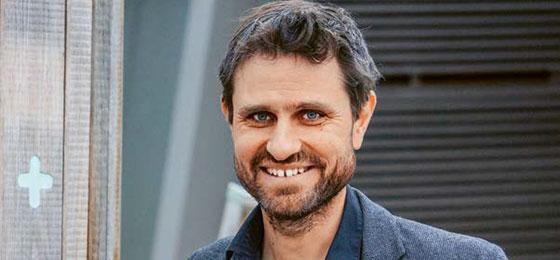"Science studies asks painful questions"

Academia must cast a scientific eye on itself, says the science historian Bruno Strasser. He explains why science studies has struggled to develop in Switzerland. Interview by Daniel Saraga
(From "Horizons" no. 114 September 2017)
Academia is reforming, from science citizens to open science. Is it happening in a scientific way?
It's the question that's painful … science demands that politicians take an evidence- based approach to their work, but it can't necessarily take that road itself. One issue is that science studies often relies on the jargon of social sciences, which is poorly understood by biologists and physicists. They really don't have access to new knowledge. That's a shame.
Is it a culture issue?
Yes, but not solely. Up to the 1960s, the meta- discourse on science was principally the domain of researchers working in the natural sciences. It was only later that sociologists and historians started looking from the outside in. That's when science studies became professional and started raising more painful questions about the way research works. The result was increased tensions between the natural and social sciences.
Those tensions have died away since then and the discourse of science studies has achieved better understanding and acceptance. But that is much less the case in Europe than in the US, where universities foster the liberal arts and students follow both hard and social science courses, which facilitates exchange between the domains.
What about Switzerland?
There's still few initiatives in science studies. The exceptions are ETH Zurich's Collegium Helveticum, the University of Lausanne's Sciences and Technologies Studies Laboratory and EPFL's College of Humanities. in 2014 Basel closed its chair, resulting in top-notch researchers emigrating. The majority of students and researchers in the natural sciences don't have a human and social sciences culture. There is a high level of institutional specialisation, meaning there's no natural home or base camp for science studies.
In your opinion, what's the most pressing matter in the field?
The critical approach to expertise. Shouldn't the public be in a position to trust academic experts when it comes to political votes and decisions?
That sounds like a populist anti-elite slogan. Is there a risk of science studies being hijacked?
Absolutely. The science sociologist Bruno Latour was reproached in 2004 for having laid down arguments in his critical writing that were later picked up by politicians to refute the science of climate change. We've even seen creationists quote science studies in court. But that doesn't mean we can self-censor on the basis that our research will be misappropriated.
That said, populists are developing the idea of extreme relativism, attempting to argue that common sense prevails over expert opinions. Science studies has nothing to do with this position, which is in fact scarier than the all-powerful technocrat. The approach is based on the critical interpretation of scientific facts, and particularly the undermining of their degree of reliability. Researchers are well aware of this argument, but it is often hidden behind the narrative of intermittent progress, historical discoveries and Eureka moments.
How can confidence be restored betweenscientists and the general public?
At the end of the 20th century, nation states feared that critical approaches to science would undermine taxpayers' approval of research. Their response was to introduce participative programmes, such as the evaluation of technology policies. The results appear to be mixed, as studies have shown that consultations were held too late in the process, i.e., after a technological project had already been chosen, and that the public felt somewhat cheated.
We're still looking for ways to get people involved, not just in decision-making, but also in producing scientific knowledge. Studies that we have carried out within my research group on science citizens show that there is broad diversity. In some cases, the citizen is happy to classify images of galaxies or neurones. He or she can learn a lot from the experience. But it leads people to believe that they are experts, when actually they're just executing simple scientific tasks with no real autonomy. This portrays a simplistic image of science. It can even be interpreted as demagogic: the public is brought on board with the intention of making it accept the form of research.
At the other end of the spectrum is the DIY Science movement, e.g., Hackuarium near Lausanne, where citizens can concoct their own research projects. This is of course mainly young people with a scientific education, but these forms of participative experiments do open up a new platform for other forms of research.
The research citizen
Bruno J. Strasser is a professor of science history at the University of Geneva and an associate professor at Yale. He has also worked on the history of biology and medicine in Paris, Berlin, Princeton, Barcelona and Manchester. He is currently investigating the history of science citizens.